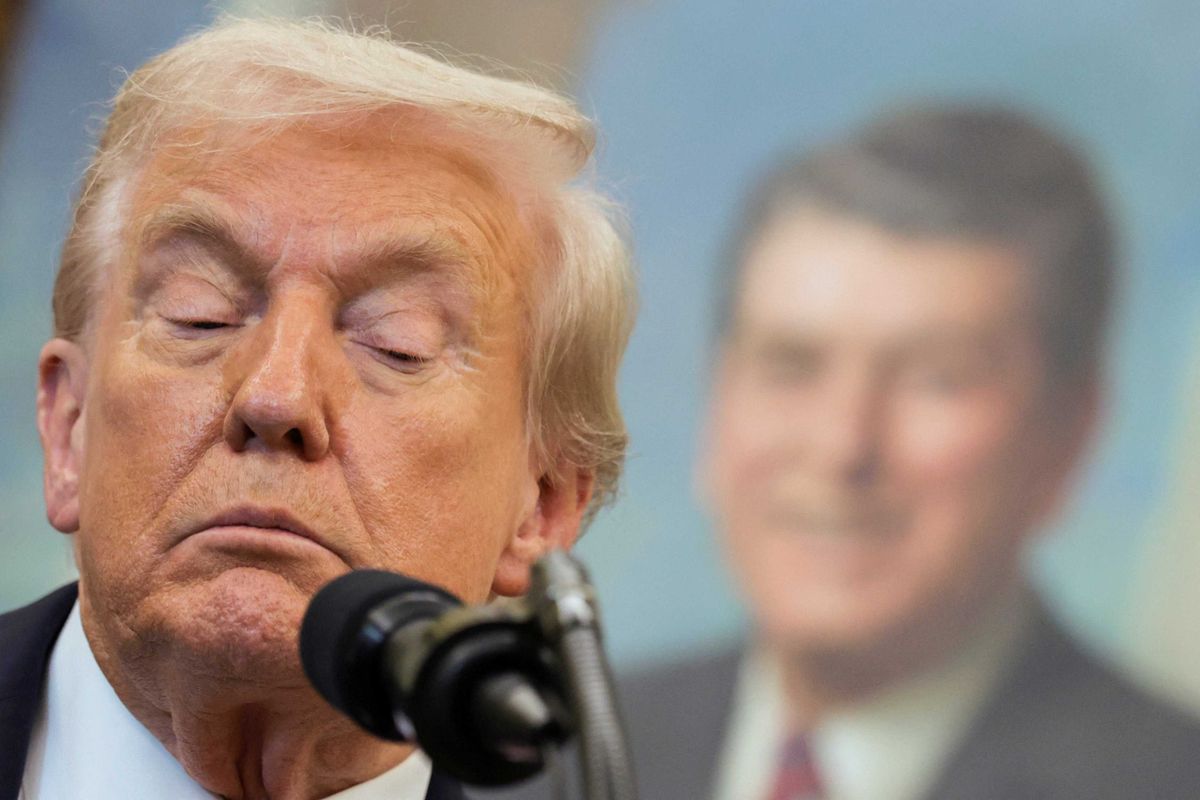
Three more leading US universities have joined the Massachusetts Institute of Technology in rejecting President Donald Trump’s compact that critics have condemned as an “extortion agreement” and “loyalty oath” for federal funding.
Brown University’s Wednesday decision and Thursday announcements from the University of Southern California and the University of Pennsylvania came ahead of the Trump administration’s Oct. 20 deadline for the nine initially invited schools to respond to the “Compact for Academic Excellence in Higher Education.”
Although the University of Texas said it was “honored” to receive the offer, it has not officially signed on to the compact to receive priority access to federal funding and other “benefits.” Neither has any of the other institutions: the University of Arizona, Dartmouth College, Vanderbilt University, and the University of Virginia.
Bloomberg reported Monday that “a few days after MIT rebuffed the proposal, the administration extended the offering to all higher education institutions,” citing an unnamed person familiar with the matter.
Brown’s president, Christina Paxson, released her full letter to Education Secretary Linda McMahon and other Trump officials on Wednesday. She pointed out that “on July 30, Brown signed a voluntary resolution agreement with the government that advances a number of the high-level principles articulated in the compact, while maintaining core tenets of academic freedom and self-governance that have sustained the excellence of American higher education across generations.”
“While a number of provisions in the compact reflect similar principles as the July agreement—as well as our own commitments to affordability and the free exchange of ideas—I am concerned that the compact by its nature and by various provisions would restrict academic freedom and undermine the autonomy of Brown’s governance, critically compromising our ability to fulfill our mission,” Paxson wrote. “While we value our long-held and well-regarded partnership with the federal government, Brown is respectfully declining to join the compact.”
Congratulations to @BrownUniversity. An institution dedicated to timeless principles must not yield to temporary improper pressures.https://t.co/pQZ6ZpqVo6
— Sheldon Whitehouse (@SenWhitehouse) October 15, 2025
Penn, also part of the Ivy League, rejected the compact on Thursday. In a statement, its president, Dr. J. Larry Jameson, said that “for 285 years, Penn has been anchored and guided by continuous self-improvement, using education as a ladder for opportunity, and advancing discoveries that serve our community, our nation, and the world.”
“I have sought input from faculty, alumni, trustees, students, staff, and others who care deeply about Penn,” with the goal of ensuring that “our response reflected our values and the perspectives of our broad community,” Jameson detailed. “Penn respectfully declines to sign the proposed compact,” and provided the US Department of Education with “focused feedback highlighting areas of existing alignment as well as substantive concerns.”
“At Penn, we are committed to merit-based achievement and accountability,” he added. “The long-standing partnership between American higher education and the federal government has greatly benefited society and our nation. Shared goals and investment in talent and ideas will turn possibility into progress.”
As The Daily Pennsylvanian, the campus newspaper, noted:
At a Wednesday meeting, Penn's Faculty Senate overwhelmingly passed a resolution urging the University to reject the agreement.
"The 'compact’ erodes the foundation on which higher education in the United States is built," the October 15 resolution read. "The University of Pennsylvania Faculty Senate urges President Jameson and the Board of Trustees to reject it and any other proposal that similarly threatens our mission and values."
Penn is the alma mater of Trump and Marc Rowan, a billionaire private equity financier who helped craft the compact.
Marc Rowan — who holds two degrees from Wharton and serves as the Chair of the school's Board of Advisors — was a key author of the White House Compact. @Penn, his alma mater, has just rejected the proposal. https://t.co/QG8OoNQEwf
— Jasmine Ni (@jasmineni_) October 16, 2025
The Trump White House told the student newspaper that “any higher education institution unwilling to assume accountability and confront these overdue and necessary reforms will find itself without future government and taxpayers’ support.”
Despite the risk of funding loss, the University of Southern California also rejected the proposal on Thursday. In a statement to the campus paper, the Daily Trojan, interim president Beong-Soo Kim said that “although USC has declined to join the proposed compact, we look forward to contributing our perspectives, insights, and Trojan values to an important national conversation about the future of higher education.”
Critics of the compact have called on educational leaders to oppose it. In a joint statement earlier this month, American Association of University Professors president Todd Wolfson and American Federation of Teachers president Randi Weingarten urged “all college and university governing boards, campus administrations, academic disciplinary organizations, and higher education trade groups to reject such collusion with the Trump administration and to stand firmly on the side of free expression and higher education as the anchor of opportunity for all.”
Acquiescing, they argued, “would be a profound betrayal of your students, staff, faculty, the public, higher education, and our shared democracy—one that would irretrievably tarnish your personal reputation and compromise your institution’s legacy. We urge you not to capitulate and not to negotiate but to unite now in defense of democracy and higher education.”




